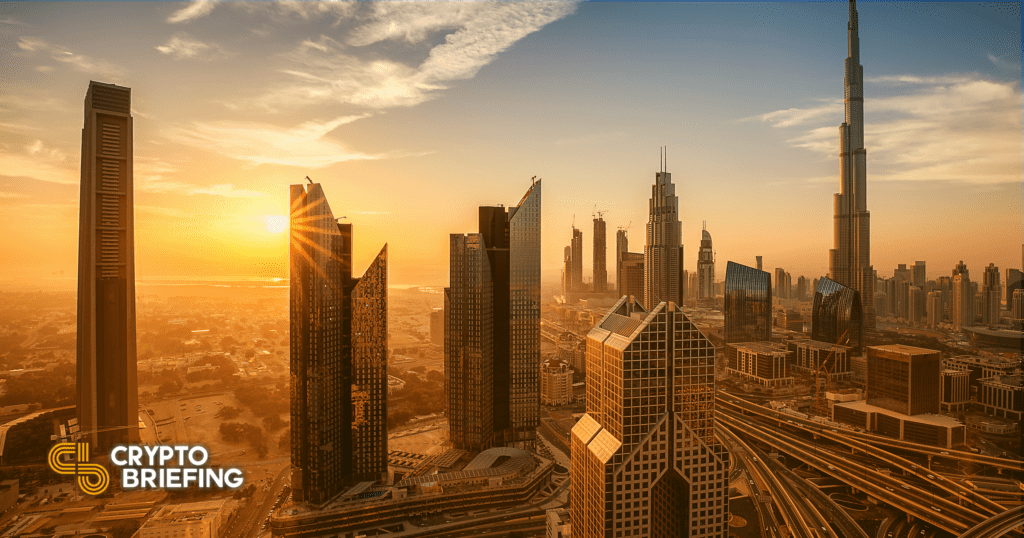
Shutterstock image by Cara-Foto
Dubai Establishes New Crypto Laws
Sheikh Mohammed bin Rashid Al Maktoum said the goal was to “establish the UAE and Dubai’s position as a key player in designing the future of virtual assets globally.”
Dubai approved a new virtual assets law today, and it created the Dubai Virtual Assets Regulatory Authority. This is a key step in Sheikh Mohammed bin Rashid Al Maktoum’s ambitions to turn Dubai and the United Arab Emirates as a whole into a crypto industry hub.
Dubai’s New Crypto Law
Sheikh Mohammed bin Rashid Al Maktoum, ruler of the Emirate of Dubai and one of the world’s richest politicians, has extended the push to make the city the center of digital assets in western Asia.
Today Sheikh Mohammed, who is also the vice president and prime minister of the United Arab Emirates, announced the Dubai Virtual Asset Regulation Law, which is “aimed at creating an advanced legal framework to protect investors” and designing “much-warranted international standards for virtual asset industry governance that will promote responsible business growth, under prudential regulations.”
Moreover, the Dubai Virtual Asset Regulatory Authority has been established. This body will be the licensor and regulator of the crypto sector in Dubai Mainland and most other Free Zone territories. It will work with the Central Bank of the United Arab Emirates as well as the Securities and Commodities Authority.
The Dubai Virtual Asset Regulatory Authority will oversee the issuance and trading of virtual assets, and companies providing crypto services will first have to gain its approval. Among other things, the new regulatory entity will also “monitor transactions and prevent virtual asset price manipulation.”
Dubai has taken a proactive stance on crypto assets for years now. For example, the Dubai International Financial Center established the “Court of Blockchain” in 2018. Last summer, the first Bitcoin Fund in the Middle East began trading on Nasdaq Dubai. Last December, the Dubai World Trade Centre Authority struck a deal with Binance to help establish the country’s most populous city as the digital assets hub of the world. In February, a Bloomberg report noted the United Arab Emirates’ plans to issue licenses for crypto service providers.
While Sheikh Mohammed might be seen largely as an ally to those in crypto, the High Court in London found him responsible for abduction, imprisonment, torture, and intimidation campaigns in a fact finding judgment last year—accusations made by his former wife, Princess Haya Bint Al-Hussain. According to the judgment, Sheikh Mohammed was found responsible for the abduction, imprisonment, and, in some instances, torture of their daughters.
Sheikh Mohammed, however, emphasized the one-sided nature of the fact-finding that occurred, claiming that, as a head of state, he was “not able to participate in the court’s fact-finding process.”
Disclosure: At the time of writing, the author of this piece owned BTC, ETH, and several other cryptocurrencies.
